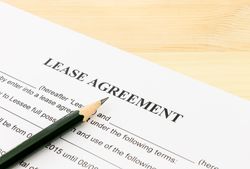4 Frequently Asked Questions About Real Estate Law

It’s no secret that real estate law can be complex. Fortunately, Luke A. Weiland Attorney at Law can help you navigate a variety of real estate topics, from home sales to commercial leases. This Wisconsin Rapids, WI, law firm pairs knowledgeable service with an individualized approach to client care to ensure your needs are met. Here, the lawyers discuss some of the most common queries people have about real estate transactions.
Real Estate Law FAQs
What Are the Pros & Cons of Buying a Home?
While many people dream of owning a home, the decision must not be made lightly. Owning a home is a great way to build equity, which is refers to the actual value of the property, not just what is due on the mortgage. It also offers stability, which is an attractive option for families. However, it can be expensive to own a home, especially since there are recurring costs like property taxes and mortgage payments. Homeownership can also make it far more difficult to pursue new opportunities without a significant financial risk.
How Can I Calculate My Property Taxes?
The assessed value of a home dictates how much the homeowner is required to pay in property taxes. If an individual believes their homes’ value is set too high, resulting in a larger tax burden, they have the right to file an appeal. In this case, the owner must compare their home to others in the area to establish a baseline value.
What Are the Differences Between Commercial & Residential Leases?
 Although both commercial and residential leases establish a tenant’s rights and responsibilities, there are a few important differences between these documents. For instance, commercial leases usually discuss the amount of rent in relation to the square footage within a structure, but it can also include a percentage of the occupant’s gross income. By contrast, a residential lease provides the tenant with a place to live and requires payments based on a market rate. Under this lease, the structure cannot be used for commercial purposes such as the sale of goods or services.
Although both commercial and residential leases establish a tenant’s rights and responsibilities, there are a few important differences between these documents. For instance, commercial leases usually discuss the amount of rent in relation to the square footage within a structure, but it can also include a percentage of the occupant’s gross income. By contrast, a residential lease provides the tenant with a place to live and requires payments based on a market rate. Under this lease, the structure cannot be used for commercial purposes such as the sale of goods or services.
What Is Real Property?
Under real estate law guidelines, real property is defined as land and any permanent structure that is affixed to the plot. This can include an array of structures, such as buildings, homes, and garages. The term also refers to anything that occurs directly under the land, such as a natural gas or oil deposit.
Whether you are preparing to buy, sell, or rent a piece of property, Luke A. Weiland Attorney at Law is a trusted legal resource for your real estate law questions. Visit the firm online for more information on their full range of practice areas. You can also schedule a consultation with a skilled attorney by calling (715) 422-6808 today.
About the Business
Have a question? Ask the experts!
Send your question

